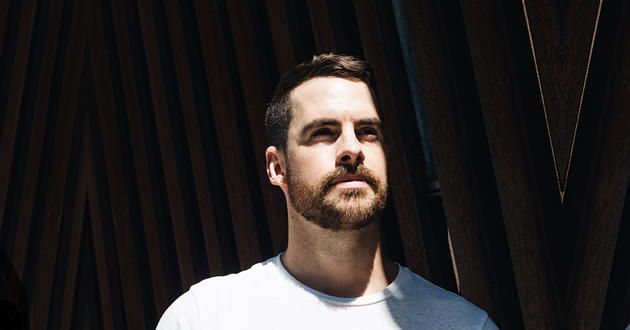Methadone Treatment

For people struggling with opiate addiction, it may seem counterintuitive to fight fire with fire. However, doctors prescribe methadone to opiate-addicted patients in order to stave off withdrawal symptoms without producing a “high” effect. This makes it a successful treatment option for many people battling opiate addiction.
What is Methadone?
Methadone, sold under the brand name Dolophine, is a synthetic opioid that was originally used to provide relief to those suffering from moderate to severe pain. However, it is now more commonly used to treat addiction to other opiates such as heroin and oxycodone.
Classified as a Schedule II drug by the U.S. Department of Justice Drug Enforcement Agency (DEA), methadone is a controlled substance that can be taken in liquid, tablet or powder form, and is usually only dispensed by certified pharmacies.
Methadone Maintenance
Methadone maintenance treatment, also known as Opiate Replacement Therapy, is the long-term use of the drug to treat an individual who is addicted to Schedule I opiates such as heroin. This treatment is commonly supplemented with counseling and other psychological services to bolster the chances of recovery. Methadone maintenance is commonly used in situations where detoxification is unsuccessful or in situations where complete abstinence from drugs is required before being admitted to a substance abuse treatment facility.
Methadone works by engaging the same brain receptors that are engaged when using opiates such as heroin, without the euphoric effects. This reduces cravings for the original drug but does not alter the mental state, allowing them to engage in everyday activities such as working or driving.
Another reason it is useful for those battling opiate addiction is because it has a longer half-life. The length of time it takes for the concentration of the drug in the body to drop to half of the starting dose, compared to other opiates.
A single daily methadone dosage can keep withdrawal symptoms at bay for more than 24 hours. Heroin has a half-life of a few hours, thus requiring several doses each day to satisfy cravings. By freeing individuals from the constant preoccupation of sourcing and self-administering illicit drugs, methadone can help individuals focus on therapy and their long-term recovery instead.
Side Effects of Methadone Maintenance
As with any treatment, there are inherent side effects. Some of the side effects of methadone maintenance include:
-
Tolerance to the drug, which leads to requiring higher doses
-
Physical dependence on the drug, which can cause withdrawal symptoms as well as addiction
-
Difficulty breathing or shallow breathing
-
Feeling lightheaded or faint
-
Swelling of the face, lips, tongue or throat
-
A fast or pounding heartbeat
-
Impaired cognitive function
-
Menstrual problems in women
Signs of Methadone Addiction
Although the prolonged use of methadone is deemed safe with no long-term effects on any major organs, it still has the potential to be addictive.
Some of the signs that an individual is addicted to methadone include:
-
Attempting to obtain multiple prescriptions from different doctors, also known as "doctor shopping."
-
Attempting to obtain the methadone from other sources, such as friends who are also on methadone.
-
Stocking the drug by skipping doses to later use the drug more often or in higher doses than recommended. This can increase the risk of overdosing.
-
Neglecting other aspects of life like work and relationships in order to continue methadone use.
According to the National Survey on Drug Use and Health in 2012, nearly 2.46 million people ages 12 and older reported using methadone for non-medical purposes at least once in their lifetime.
And while methadone-related overdose deaths have trended down from 2007 to 2014, methadone still accounts for nearly one in four prescription opioid-related deaths, according to the Centers of Disease Control and Prevention.
However, the good news is that there are treatment options available for those want to stop taking methadone.
Treatment for Methadone Addiction
For individuals who are ready to seek treatment for methadone abuse or addiction, seeking an evaluation from a substance abuse counselor or facility is the first step.
Based on an individual's frequency of use and the intensity of their methadone dependence, a detox period, as well as a residential rehab or outpatient treatment, will be recommended.
Methadone Detox
The duration of methadone detox, the process of clearing the drug from the body either gradually or all at once, can vary depending on the severity of addiction. To ensure the safety of the individual, it is recommended to do it under the supervision of medical professionals who can help manage withdrawal symptoms.
Withdrawal from methadone may cause the following symptoms:
-
Flu-like symptoms: aches, fever, sweating and chills
-
Anxiety, paranoia, irritability or agitation
-
Elevated heart rate or excessive perspiration
-
Abdominal cramps
-
Drug cravings
-
Insomnia
-
Hallucinations
-
Suicidal thoughts
To help with manage the symptoms of withdrawal or to aid in a gradual detox, medical professionals may prescribe Suboxone or Subutex, which are commonly used in opioid treatment and are a good alternative to methadone maintenance treatment.
Both of these drugs contain Buprenorphine, a partial opioid antagonist, that help reduce cravings and withdrawal symptoms. Subutex, however, contains an additional drug called naloxone, an opioid antagonist, that binds to opioid receptors and can reverse and block the effects of other opioids. This prevents the users from getting high on other opiates while in treatment. Once the patient and the medical professionals think it is time, the dosage of both these drugs can be gradually reduced with fewer withdrawal symptoms.
Methadone Rehab
There are two types of treatment programs: residential and outpatient. Choosing the type that’s right for you depends on your individual needs and goals.
Residential Treatment for Methadone
As part of a residential rehabilitation program, a patient checks in to a facility where they have 24/7 care in a controlled environment as they overcome their addiction. Residential programs are often recommended as the first step before outpatient therapy, and they are ideal for individuals who may not have the support and structure at home to motivate them in their rehabilitation process.
It is also ideal for people suffering from severe methadone addiction. Individuals enrolled in inpatient programs, which are considered the highest level of care, can focus completely on their recovery and avoid triggers that may be present at home. The duration of treatment in inpatient programs can last anywhere from six months to a year. However, longer treatment programs are considered to be more effective.
Outpatient Treatment for Methadone
As part of an outpatient rehab program, an individual can continue to take care of their daily responsibilities, such as working or attending school. Outpatient programs are suited for those who have successfully completed an inpatient program and have reached a point where they can manage their addiction without a controlled environment.
Outpatient programs are also suited for those individuals who cannot afford to take six months to a year off and must attend to their daily obligations while they are working on their sobriety. In order to succeed in an outpatient program, which has a greater chance of relapse, an individual must have a supportive home environment.
How to Find a Good Methadone Rehab Center
Once an individual has decided to seek help, it is important to seek out a methadone rehab center that best suits their individual needs. If money is a factor, it is best to first check with a person's insurance company to establish what is covered under their specific plan before shopping around.
Things to consider when looking for a good Methadone rehab center:
-
Is it a short-term or long-term treatment program?
-
Does the center's treatment include substituting the drug an individual is addicted to for another drug that is itself addictive or harmful?
-
Does the center have experienced staff and high rate of success?
-
Does the center cater treatment based on each individual's unique needs or does it take a one-size-fits-all approach to treatment?
-
How big is the facility? How many patients are at the facility?
-
Does the center consider addiction a chronic illness that requires long-term care as well as long-term support?
The path to sobriety can be a long and difficult one, but with the right attitude, support and environment, it is possible to regain control of your life and achieve sobriety from methadone.










